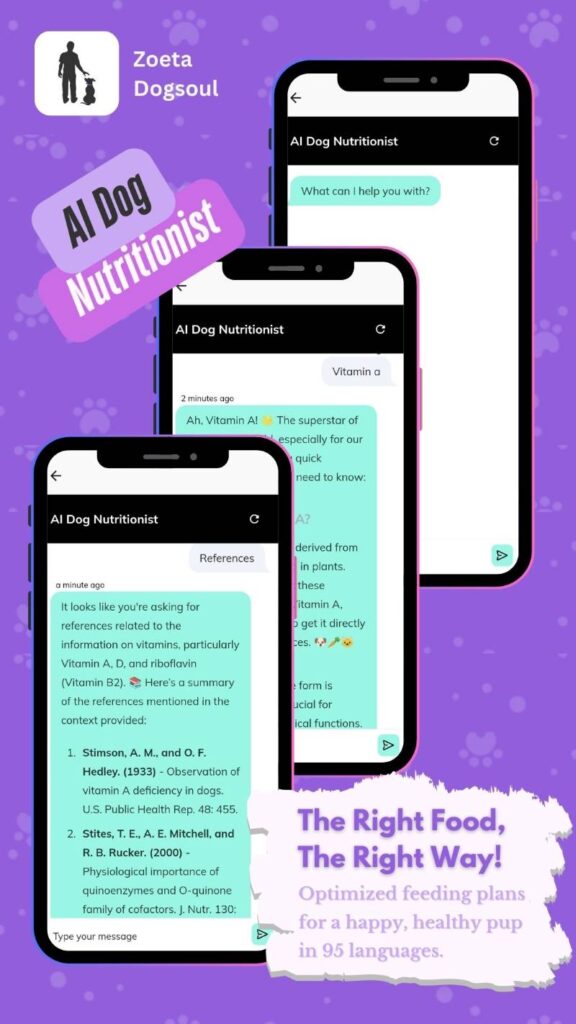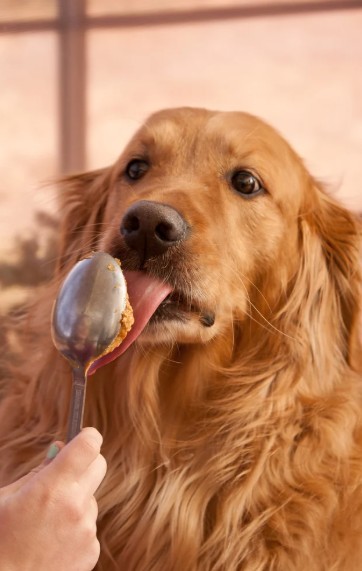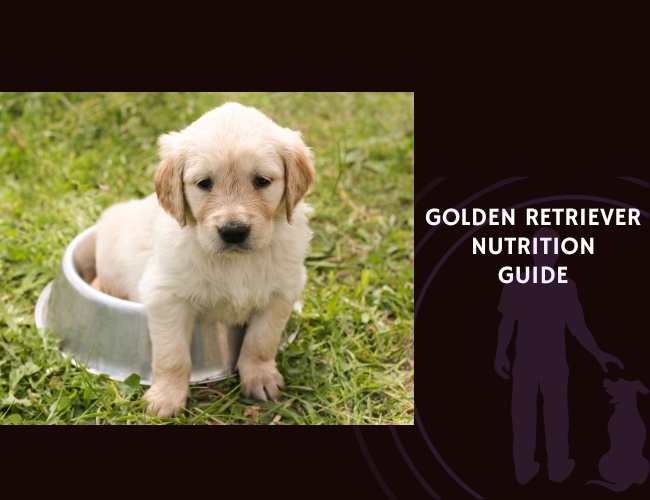Your Golden Retriever’s wagging tail and bright eyes tell a story of joy and vitality—and proper nutrition plays a starring role in keeping that sparkle alive. Let us guide you through the nutritional journey that will help your beloved companion thrive from puppyhood through their golden years.
Golden Retrievers, with their lustrous coats and boundless energy, have unique nutritional needs shaped by their genetics, activity levels, and that famously enthusiastic appetite. Understanding these needs isn’t just about filling a food bowl; it’s about nurturing a trusting relationship built on care and knowledge.
Understanding Your Golden’s Metabolism
The Energy Equation
Did you know your Golden Retriever’s metabolism runs like a well-tuned engine? These active dogs possess a moderately high metabolic rate, meaning they need substantial energy to fuel their adventures—whether that’s retrieving tennis balls or simply following you from room to room with devoted attention.
This metabolic efficiency stems from their working dog heritage—generations of retrieving waterfowl in challenging conditions shaped their bodies to convert food into usable energy with remarkable effectiveness. Your Golden’s daily energy needs typically range from 989 to 1,740 calories, depending on their weight and activity level. A moderately active 70-pound Golden Retriever, for instance, requires approximately 1,350 calories daily—that’s equivalent to the energy you’d burn running for nearly two hours!
But here’s where it gets interesting: your Golden’s metabolism doesn’t operate at a constant rate throughout the day. You might notice bursts of energy (those famous “Golden zoomies”) followed by peaceful napping sessions. This natural rhythm reflects their body’s sophisticated energy management system, conserving fuel when resting and ramping up during activity. Environmental factors play a role too—cold weather can increase their metabolic rate by up to 15% as their body works harder to maintain temperature, while hot summer days might see a slight decrease as they wisely conserve energy.
Key metabolic factors to consider:
- Individual variation based on age, activity level, and environment
- Efficient digestive systems that process nutrients effectively
- A genetic predisposition to enthusiastic eating (and unfortunately, weight gain)
Your Golden’s stomach size falls into the moderate range, perfectly designed for their frame. This means feeding frequency matters as much as food quality—think of it as pacing their nutritional intake throughout the day.
The Weight Management Challenge
Here’s a truth every Golden Retriever parent needs to hear: these lovable dogs have a significant predisposition to obesity. It’s not your fault they give you those irresistible “feed me” eyes! Their genetic makeup, combined with their food-driven nature, creates a perfect storm for weight gain. Monitoring your dog’s body condition score becomes as important as those regular vet checkups. 🧡
Macronutrients: Building Blocks of Health
Protein Power
Your Golden Retriever’s protein needs change like chapters in their life story. During puppyhood, when bones are growing and muscles are developing, protein requirements soar to 22-26% of their diet’s dry matter. Think of protein as the construction material for your puppy’s rapidly developing body.
Life stage protein guidelines:
- Puppies (0-12 months): 22-26% for optimal growth
- Adults (1-7 years): 18-22% for maintenance
- Seniors (7+ years): 20-24% to preserve muscle mass
You might notice senior dogs need slightly more protein than adults—this helps combat age-related muscle loss, keeping your older Golden strong and mobile.
The Fat Factor
Fat isn’t just about calories; it’s about providing essential fatty acids that keep your Golden’s coat gleaming and joints moving smoothly. These dogs typically thrive on diets containing 15-20% fat content.
Think of dietary fat as your Golden’s multi-tool nutrient—it serves as a concentrated energy source (providing 2.5 times more energy per gram than proteins or carbohydrates), enables the absorption of fat-soluble vitamins (A, D, E, and K), and delivers those crucial fatty acids their bodies can’t produce on their own. When you run your fingers through your Golden’s signature double coat, you’re feeling the direct results of proper fat nutrition. That water-repelling outer coat and insulating undercoat? They depend on adequate fat intake to maintain their protective qualities.
The quality of fat matters as much as quantity. Your Golden benefits from a diverse fat profile including both animal-based fats (like chicken fat or fish oil) and plant-based sources (such as flaxseed or sunflower oil). Each source brings unique benefits—fish oil delivers DHA for cognitive function, while chicken fat provides readily available energy and enhances food palatability (because let’s face it, your Golden’s enthusiasm for mealtime needs little encouragement!). Temperature stability becomes crucial too; fats can oxidize and turn rancid, robbing your dog of nutritional benefits and potentially causing digestive upset.
The magic lies in the omega fatty acid balance. A ratio of omega-6 to omega-3 fatty acids around 5:1 to 4:1 supports:
- Lustrous coat health
- Reduced inflammation
- Enhanced cognitive function
- Overall cellular health
Sources like fish oil and flaxseed oil become nutritional gold for your Golden Retriever.
Carbohydrate Considerations
While carbohydrates provide energy, Golden Retrievers show varying tolerance levels. Some dogs bound through life on moderate carb intake, while others may experience digestive upset or unwanted weight gain. The key? Choose complex carbohydrates over simple sugars—think sweet potatoes over table scraps.
Essential Vitamins & Minerals
The Micronutrient Symphony
Just as a symphony requires every instrument to create beautiful music, your Golden Retriever’s body depends on each micronutrient to maintain vibrant health. These tiny nutritional powerhouses work in harmony—when one is missing or out of balance, the entire performance suffers. You might not see vitamins and minerals listed prominently on dog food packages like protein and fat percentages, but their behind-the-scenes work keeps your Golden’s tail wagging and eyes bright.
The fascinating part? Many of these micronutrients work in partnerships. Calcium needs vitamin D for proper absorption, while vitamin E protects vitamin A from oxidation. Iron requires vitamin C for optimal uptake, and zinc works alongside copper in careful balance. It’s like watching a perfectly choreographed dance where each partner supports the other. This intricate interplay explains why feeding a varied, balanced diet matters more than megadosing individual supplements—your Golden’s body thrives on nutritional teamwork, not solo performances.
Your Golden’s body orchestrates a complex symphony of vitamins and minerals, each playing a crucial role:
Vital vitamins include:
- Vitamin A: Supporting those soulful eyes and robust immune function
- Vitamin D: The sunshine vitamin for calcium absorption and bone strength
- Vitamin E: A powerful antioxidant protecting cells from damage
- B-complex vitamins: The energy team, supporting metabolism and nerve function
Critical minerals encompass:
- Calcium & Phosphorus: The dynamic duo for skeletal health
- Zinc: Supporting immune function and that healthy coat
- Selenium: Another antioxidant warrior in your dog’s defense system
These micronutrients work together like a well-rehearsed team, each supporting the others in maintaining your Golden’s health.
Navigating Food Sensitivities
When Dinner Doesn’t Agree
While Golden Retrievers aren’t inherently more allergy-prone than other breeds, they can develop sensitivities that turn mealtime into mystery-solving time. Common culprits include proteins like beef, chicken, or dairy, and grains such as wheat or corn.
The tricky part about food sensitivities? They often develop over time, meaning your Golden might happily munch the same kibble for years before suddenly showing signs of intolerance. It’s like your dog’s immune system decides to change the rules mid-game. This delayed onset can leave you scratching your head (while your Golden scratches everything else!). The development typically follows repeated exposure—the more frequently your dog encounters a particular protein, the more likely they are to develop a sensitivity to it. This explains why novel proteins like venison, duck, or even kangaroo often become go-to options for sensitive Goldens.
Distinguishing between true food allergies and food intolerances adds another layer to the puzzle. Allergies trigger an immune response and typically manifest through skin issues—think of it as your Golden’s body sounding an alarm. Intolerances, however, usually show up as digestive drama without involving the immune system. Your detective work becomes crucial here: keeping a food diary, noting symptoms, and working closely with your veterinarian can help crack the case. Some Golden parents find success with elimination diets, systematically removing and reintroducing ingredients like a nutritional process of elimination.
Signs your Golden might have food sensitivities:
- Persistent itching or skin redness
- Recurring ear infections
- Gastrointestinal upset (vomiting or diarrhea)
- Excessive paw licking
- Hair loss or dull coat
If you notice these signs, don’t worry—you’re not alone. Many Golden parents navigate food sensitivities successfully with patience and veterinary guidance. 🐾

Life Stage Nutrition: Growing, Thriving, Aging
Puppy Nutrition (0-12 months)
Your Golden puppy arrives as a bundle of energy wrapped in fluffy fur, requiring specialized nutrition for their rapid growth phase. Think of puppy food as rocket fuel designed for development.
- Higher calorie density to support growth spurts
- Increased protein for muscle and tissue development
- Balanced calcium and phosphorus for proper skeletal formation
- DHA for brain and vision development
Feed your puppy 3-4 smaller meals daily to prevent overwhelming their developing digestive system.
Adult Maintenance (1-7 years)
Adult Golden Retrievers hit their stride, requiring balanced nutrition that maintains their zest for life without tipping the scales. This stage focuses on sustaining energy while preventing weight gain—a delicate balance for food-loving Goldens.
Adult feeding strategies:
- Consistent meal times (typically twice daily)
- Measured portions based on activity level
- Regular body condition assessments
- Adjust portions seasonally (less in summer, more in winter)
Senior Support (7+ years)
As your Golden’s muzzle turns grey, their nutritional needs shift once more. Senior dogs benefit from diets that support aging joints, maintain muscle mass, and provide cognitive support.
- Slightly increased protein to preserve muscle
- Added glucosamine and chondroitin for joint health
- Antioxidants to combat cellular aging
- Controlled calories to prevent weight gain on less active bodies
- Consider cognitive support nutrients like MCTs (medium-chain triglycerides)
Reproductive Nutrition
Female Golden Retrievers experiencing pregnancy or nursing require dramatically increased nutrition—up to 50% more calories during peak lactation. This isn’t the time for calorie counting; it’s about supporting new life.
Bright. Balanced. Beloved.
The joy starts in the bowl.
A Golden Retriever’s radiance isn’t just genetic—it’s nurtured by every thoughtful bite. Their wagging tail, sparkling eyes, and playful bounce begin with what you feed. Nutrition doesn’t just sustain; it shapes the soul of your dog.
Overfeeding is underloving.
No matter how persuasive those pleading eyes may be, true care means setting boundaries. Golden Retrievers live to eat—but thrive when meals are measured, balanced, and built for their unique biology. The right choices today protect their mobility, heart, and happiness tomorrow.



Age changes needs—your knowledge changes outcomes.
From fluffy puppy to silver-muzzled sage, every life stage rewrites your Golden’s nutritional script. Knowing when to shift gears—more protein, less fat, joint support, brain fuel—transforms feeding into lifelong protection. Your awareness is their advantage.
Health Risks & Nutritional Prevention
Hip Dysplasia: A Nutritional Approach
Golden Retrievers face a genetic predisposition to hip dysplasia, but nutrition plays a preventive role. Maintaining proper weight throughout life reduces stress on developing and mature joints.
Nutritional strategies for hip health:
- Controlled growth rate in puppies (avoid overfeeding)
- Maintain lean body condition throughout life
- Consider joint-supporting supplements after veterinary consultation
Bloat Prevention Through Feeding
Gastric dilatation-volvulus (bloat) poses a serious risk to deep-chested breeds like Golden Retrievers. Your feeding strategy becomes a life-saving routine.
Bloat prevention feeding tips:
- Divide daily food into 2-3 smaller meals
- Avoid exercise 1 hour before and after meals
- Consider elevated feeders (though research remains mixed)
- Use slow-feeder bowls for enthusiastic eaters
- Keep fresh water available but monitor gulping
Pancreatitis & Fat Management
Your Golden’s love for food can lead to pancreatitis if fat intake spirals out of control. This painful condition reinforces why moderation matters.
Fat management guidelines:
- Stick to recommended fat percentages (15-20%)
- Avoid table scraps, especially fatty foods
- Monitor treat intake (should be <10% of daily calories)
- Choose low-fat training treats
Heart Health Considerations
Recent research suggests some Golden Retrievers may develop dilated cardiomyopathy (DCM), potentially linked to taurine levels. While investigations continue, ensuring adequate taurine through diet provides peace of mind.
Choosing the Right Diet Type
Commercial Kibble: The Convenient Choice
High-quality kibble offers convenience without sacrificing nutrition. Look for brands meeting AAFCO standards with meat as the first ingredient.
Kibble advantages:
- Convenient storage and feeding
- Consistent nutritional profile
- Dental benefits from crunching
- Wide variety of formulations
Potential drawbacks:
- Processing may reduce some nutrients
- Some dogs find it less palatable
- Quality varies significantly between brands
Raw Diets: Back to Nature?
Raw feeding appeals to owners seeking a “natural” approach, but requires dedication to safety and balance.
- Requires careful handling to prevent bacterial contamination
- Must be nutritionally balanced (consider professional formulation)
- More expensive than commercial diets
- Time-intensive preparation
Home-Cooked Meals: Made with Love
Preparing your Golden’s meals offers ultimate control over ingredients, but demands nutritional knowledge.
Home cooking essentials:
- Work with a veterinary nutritionist for balanced recipes
- Invest in quality supplements to fill nutritional gaps
- Maintain consistency in preparation
- Regular monitoring of your dog’s condition

Practical Feeding Guidelines
Portion Control & Scheduling
Your Golden Retriever’s “I’m starving” act deserves an Oscar, but don’t let those pleading eyes override portion control.
Feeding schedule recommendations:
- Puppies: 3-4 meals daily
- Adults: 2 meals daily
- Seniors: 2 meals daily (consider smaller, more frequent meals if needed)
Always measure portions using a proper measuring cup—eyeballing leads to overfeeding.
Managing Mealtime Behaviors
Does your Golden inhale their food like a vacuum cleaner? You’re witnessing breed-typical enthusiasm that needs gentle management.
Strategies for fast eaters:
- Invest in puzzle feeders or slow-bowl designs
- Scatter feeding on a snuffle mat
- Use food-dispensing toys for mental stimulation
- Consider frozen Kong toys with meals
Addressing food guarding:
- Feed in a quiet, separate space
- Don’t disturb during meals
- Work with a professional trainer if aggression appears
- Build positive associations with approach during mealtime
Supplement Wisdom
Before reaching for that supplement bottle, remember: a balanced diet provides most nutrients your Golden needs.
Supplements worth considering (with veterinary guidance):
- Omega-3 fatty acids for coat and joint health
- Glucosamine/chondroitin for senior dogs
- Probiotics during digestive upset
- Specific vitamins only if deficiency is diagnosed
Creating Your Golden’s Nutritional Journey
Reading Food Labels Like a Pro
Understanding pet food labels empowers you to make informed choices for your furry friend.
Label interpretation basics:
- First ingredient should be a named meat
- Look for AAFCO nutritional adequacy statement
- Check guaranteed analysis for protein and fat percentages
- Avoid foods with excessive fillers or by-products
Transitioning Foods Successfully
Golden Retrievers may have sturdy constitutions, but abrupt diet changes can upset any dog’s digestion.
The 7-day transition plan:
- Days 1-2: 75% old food, 25% new food
- Days 3-4: 50% old food, 50% new food
- Days 5-6: 25% old food, 75% new food
- Day 7: 100% new food
Monitor stools throughout—loose stools indicate you may need to slow the transition.
When to Seek Professional Guidance
You don’t have to navigate nutrition challenges alone. Seek veterinary consultation when:
- Your Golden shows signs of food allergies
- Weight management becomes difficult
- Senior health issues emerge
- You’re considering major diet changes
Conclusion: Nourishing the Golden Bond
Feeding your Golden Retriever well means more than filling their bowl—it’s about understanding their unique needs, preventing health issues, and adapting nutrition throughout their life journey. From that first puppy meal to senior supplements, every nutritional choice strengthens the bond you share.
Remember, the best diet for your Golden Retriever is one that keeps their tail wagging, coat shining, and energy flowing. Whether you choose kibble, raw, or home-cooked meals, consistency, quality, and appropriate portions create the foundation for a healthy, happy life together.
Your dedication to understanding Golden Retriever nutrition shows the depth of your commitment to your four-legged family member. With this knowledge, you’re equipped to make informed decisions that support your Golden’s health from nose to tail, ensuring many years of fetch, cuddles, and those special moments that make Golden Retrievers such treasured companions. 🧡










